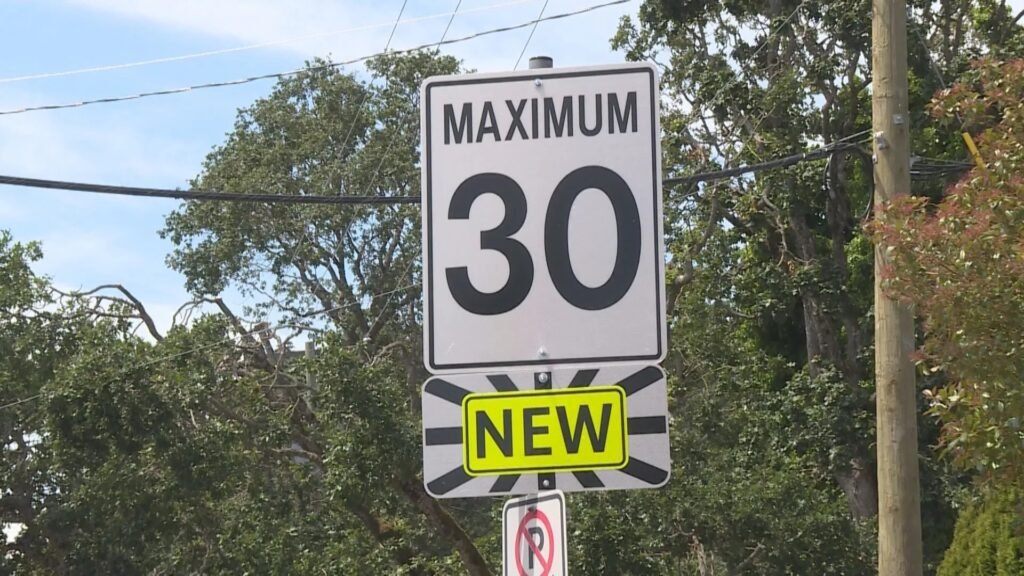The City of Vancouver has recently approved a significant traffic safety move. It lowered the default speed limit on local streets from 50 km/h to 30 km/h. Now, many in Delta are wondering if it’s time for their city to follow suit.
Vancouver city council voted unanimously in favor of this change. City leaders say the goal is simple: make the streets safer for everyone, especially people walking or riding bikes.
Research shows that lowering vehicle speeds can save lives. When cars travel at 50 km/h, a person hit by a vehicle has about an 80% chance of dying. But when the car is going only 30 km/h, that risk drops to 15%. The stopping distance is also shorter—by almost 50%—which helps prevent crashes altogether.
Right now, in most of British Columbia, the general speed limit is 50 km/h unless a different limit is posted. However, cities have the power to reduce the speed on certain streets. That’s what Vancouver has chosen to do—and what Delta could consider next.
HUB Cycling, a local advocacy group, praised Vancouver’s move. The group says they have been asking the province to make 30 km/h the default limit on all local streets. They believe this change should be included in the B.C. Motor Vehicle Act.
Supporters say the benefits go beyond safety. Slower speeds also help the environment and make neighborhoods more pleasant for walking and cycling. Studies from around the world support this idea.
Delta has already made some changes. The city launched a “Slow Streets” pilot program in a few residential areas. These zones have lower speed limits to improve safety and quality of life.
Steven Lan, Delta’s engineering director, spoke to the city council last year about these efforts. He presented the Vision Zero strategy, which aims to eliminate traffic-related deaths and serious injuries. Lan explained that Delta is focusing its resources on busy streets, where most serious crashes happen.
According to Lan, the city gets about 100 requests each year for traffic calming measures. These usually come from residents concerned about speeding and pedestrian safety. Even though traffic studies show most drivers are following the speed limit, many people still feel unsafe.
Lan also pointed out that the current 50 km/h speed limit may not fit the needs of every neighborhood. In some areas, especially those that already have traffic calming measures, there might be support for lowering the speed to 30 km/h.
Delta has not yet adopted a citywide lower speed limit. But the city council has backed the new Vision Zero safety plan. This plan takes a deep look at collision data, feedback from the public, and technical road safety studies. Its main focus is to improve safety on busy corridors and dangerous intersections.
Still, as other cities like Vancouver make bold changes, the question remains: will Delta take the next step?
There are clear reasons to do so. Lowering the speed limit on residential streets can reduce injuries and save lives. It can also help make neighborhoods feel safer and more connected.
Community feedback, expert advice, and real-world data all suggest that slower streets are safer streets. Now, it’s up to Delta to decide whether it’s time to make a move.

